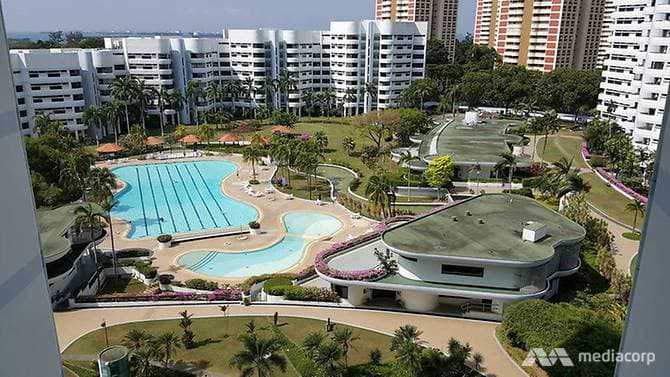Commentary: Behind dashed hopes of Mandarin Gardens en bloc sale, unbridled speculation and wishful thinking
07 April, 2019

Hailed as a bright spot in 2017, the strong recovery in the en bloc sector received a rude shock after the property market was slapped with a fresh round of property cooling measures in July 2018.
On the surface, the latest casualty of this sledgehammer were the more than 1,000 residential unit owners of Mandarin Gardens, who seemed to be making steady progress towards what would have been Singapore’s priciest collective sale agreement - until it came to a grinding halt last week, leaving many readers wondering whether the en bloc fever has finally cooled.
The 99-year leasehold condominium failed to garner enough signatures to start the tender process.
But there were warning signs the deal was already on shaky ground.
The Mandarin Gardens’ en bloc sales committee raised the asking price twice from an initial S$2.478 billion to S$2.788 billion, and then again to S$2.927 billion.
Despite the record-high asking price, the committee obtained only 68 per cent falling short of the requisite 80 per cent consensus, when the collective sale agreement expired.
DEVELOPERS ARE THINKING TWICE TOO
The residential private property market has softened considerably since the cooling measures were rolled out. More than 30 collective sale tenders have ended without successful bids.
The raised Additional Buyer’s Stamp Duty (ABSD) and tightened Loan-to-Value limits have increased transaction costs when residential properties change hands, making it deliberately painful especially for those thinking of buying a second or subsequent residential property for investment.
The additional ABSD imposed on developers snapping up land for en bloc redevelopment has also made it more costly if they fail to sell all units within five years.
These measures have already claimed their first victims in halting other en bloc projects – developer Tee Land called off Upper East Coast’s Teck Guan Ville’s collective sale in late July 2018 after redoing their sums, and Lafe Corp backed out from buying over Sophia Road’s Fairhaven in October 2018.
While many observers have highlighted the additional costs in terms of stamp duty and limits on loans imposed on buyers, sellers and developers, which have no doubt dampened the private property market, less talked about are the effects of the measures in cooling speculative sentiments and forcing these actors to think twice.
The effects of the ABSD measures on en bloc activities are two-fold. Owners of en bloc properties will have to pay a higher ABSD when purchasing a replacement property, and will therefore need a higher reserve price to be incentivised to move out and recoup their costs.
But a higher asking price will now put off developers who have to consider their additional ABSD costs as well as whether a high selling price will deter potential buyers facing additional hurdles. Developers, in thinking about en bloc acquisitions, face a double whammy of a non-remissible ABSD and dwindling demand as local and foreign buyers are more cautious.
EN BLOC FEVERS OVER THE LAST 20 YEARS
The fact is land demand in the private property market had been relatively sanguine in the 1990s. An en bloc frenzy broke out in the early 2000s but was cooled quickly by the US subprime crisis in 2007. This external shock put the world in a grave economic crisis and killed demand, as banks and governments struggled to stimulate their economies.
But as market sentiment picked up, reaching another fever pitch in 2011, the Government stepped in to cool speculation by introducing ABSD for the first time, targeting foreigners and corporate entities, as well as Singaporeans buying for investment purposes.
But as land banks were drawn down over the last six years, and the market got accustomed to factoring in ABSD costs, developers started sniffing around to acquire land in late 2016 and the en bloc market picked up.
TAG(s):
